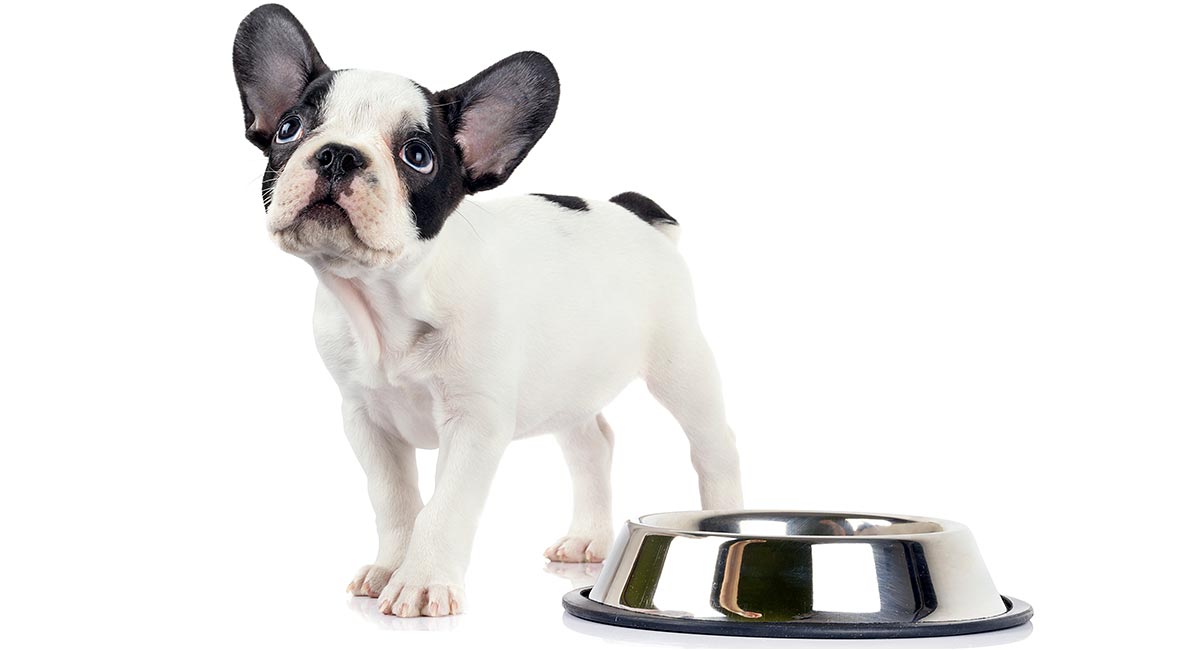
Introduction
Providing the accurate amount of food for your French Bulldog puppy is paramount to ensure their optimal growth and development. Understanding the precise portion sizes required is crucial for their physical well-being and overall vitality. This comprehensive manual will cover all facets of feeding a French Bulldog puppy, including their specific nutritional needs, recommended feeding schedules, and common dietary issues. Discovering How much to feed french bulldog puppy is fundamental to their flourishing journey into adulthood.
Understanding Your French Bulldog Puppy’s Nutritional Needs
Unique Dietary Requirements
French Bulldog puppies need a specific diet to support their growth in the early stages of life. Their diet should be balanced and contain important nutrients like proteins for muscle development and repair, fats for energy and brain function, carbohydrates for daily energy requirements, and vitamins and minerals for bone health, immune system strength, and overall well-being.
Determining Nutritional Needs
The dietary needs of a French Bulldog puppy may vary based on different factors:
- Age:Your puppy’s nutritional requirements will change as they grow older.
- Size:Larger puppies may require more food compared to smaller ones.
- Activity Level:Puppies that are more active might need additional calories.
- Health Condition:Puppies with specific health issues may need special diets.
How much to feed a puppy french bulldog

Recommended Feed
Establishing a consistent feeding schedule is important to maintain your puppy’s health and prevent overeating. Below is a simple feeding routine based on your puppy’s age:
- 8-12 Weeks:Give your puppy meals four times a day.
- 3-6 Months:Provide your puppy with food three times a day.
- 6-12 Months:Feed your puppy two to three times a day.
Determining Portion Sizes
Determining the appropriate portion sizes for a French Bulldog Puppy is essential and depends on factors such as weight, activity level, and health status. Here is a general guide to assist you in determining portion sizes:
- Weight:Check the puppy’s current weight and compare it with standard weight charts for its age.
- Activity:Take into account the puppy’s daily activity level, including exercise and walks.
- Health:Monitor the puppy’s health to adjust food quantities accordingly.
- Food:Adhere to the recommended feeding guidelines provided by the food brand and make adjustments as necessary.
- Adjustments:Modify portion sizes based on your observations of the puppy’s health and weight.
- Consult a vet:It is recommended to seek advice from a veterinarian regarding the feeding schedule and portion sizes to ensure the puppy receives proper nutrition.
Food Measurement Table:
| Age | Weight (Approx.) | Meals per Day | Portion Size (Dry Food) | Portion Size (Wet Food) |
| 8-12 Weeks | 2 – 4 kg | 4 | 1/4 – 1/2 cup | 1/2 – 1 cup |
| 3-6 Months | 4 – 7 kg | 3 | 1/2 – 3/4 cup | 1 – 1 1/2 cups |
| 6-12 Months | 7 – 12 kg | 2-3 | 3/4 – 1 cup | 1 1/2 – 2 cups |
Please note that individual puppy growth may impact weight. Always monitor and adjust food amounts based on weight, activity level, and specific health needs. Consult a vet if necessary.
Importance of Consistency
Establishing a steady feeding schedule and controlling portion sizes can help regulate digestion and prevent overeating. Having a consistent routine can also make meal times more enjoyable and stress-free for your puppy.
Choosing the Right Puppy Food
- Opt for puppy foods containing 28-32% protein from high-quality sources like chicken, turkey, or fish, while avoiding fillers like corn, wheat, or soy.
- Look for a fat content of 14-18% and moisture below 10%, ensuring essential nutrients such as calcium, phosphorus, and DHA are present for bone and brain development.
- Choose food designed specifically for small breed puppies, with smaller kibble sizes and nutrients tailored to meet the needs of French Bulldog puppies.
- Select puppy formulas labeled suitable for puppies to fulfill their increased energy and nutritional needs during growth.
- Seek personalized recommendations from your veterinarian based on your French Bulldog puppy’s specific requirements, including any allergies or health concerns.
Monitoring Your Puppy’s Weight and Growth

Regularly monitoring your French Bulldog puppy’s weight and growth is crucial to ensure they are developing correctly. Keeping a record of these measurements enables you to adjust their diet as needed and identify any potential health issues early on.
Weighing Your Puppy
Regularly monitoring your puppy’s weight is a simple way to keep an eye on their development. Below is a chart displaying the weight ranges for French Bulldog puppies at different stages:
| Age (weeks) | Weight Range (lbs) | Weight Range (grams) |
| Birth | 0.5 – 0.75 | 225 – 340 |
| 1 | 0.03 – 0.125 | 28 – 56 |
| 2 | 1 – 2 | 450 – 900 |
| 3 | 1.5 – 3 | 680 – 1,360 |
| 4 | 2 – 4 | 900 – 1,800 |
| 6 | 3 – 5 | 1,360 – 2,300 |
| 8 | 4 – 7 | 1,800 – 3,200 |
Body Condition Score (BCS)
Aside from monitoring your puppy’s weight, evaluating their Body Condition Score (BCS) can offer valuable insights into their overall well-being. The BCS system rates a dog’s body condition on a scale of 1 to 9:
- 1-3: Underweight
- 4-5: Ideal weight
- 6-9: Overweight to obese
To assess your puppy’s BCS, check if you can easily feel their ribs without them being visible. Your puppy should also have a distinct waist when viewed from above and a tucked-up belly from the side.
Adjusting the Diet
If you notice that your French Bulldog puppy is not thriving, consider adjusting their diet. Consult with your veterinarian to determine the best course of action. Changes may include:
- Modifying portion sizes based on weight changes.
- Trying a different type of food if their current diet lacks essential nutrients or causes digestive problems.
- Incorporating supplements recommended by your vet to address specific deficiencies.
Regular veterinary check-ups will ensure that your puppy remains on a path to good health. Your vet can offer tailored advice and help fine-tune your puppy’s nutrition plan.
By closely monitoring your French Bulldog puppy’s weight and progress, you can help them develop into a healthy and happy adult dog.
Addressing Common Concerns and Issues

Raising a French Bulldog puppy comes with its own set of challenges and concerns. Common issues that may arise include allergies, digestive problems, and respiratory issues.
Allergies
French Bulldogs often have sensitive skin and are prone to allergies triggered by various factors like food ingredients, environmental elements, or grooming products. Symptoms may include itching, redness, and swelling. Opting for specialized diets labeled ” Best food for French Bulldog with skin allergies ” can help manage symptoms and promote skin health.
- Identify the Allergen:Work with your vet to conduct allergy tests and pinpoint the exact cause.
- Food Trials:Switch to hypoallergenic food choices that eliminate common allergens such as chicken, beef, dairy, and grains.
- Environmental Control:Maintain a clean living environment by using air purifiers, regularly cleaning your dog’s bedding, and reducing exposure to known allergens.
Digestive Problems
French Bulldog puppies often face digestive issues because of their delicate stomachs. Signs like diarrhea, vomiting, and flatulence may indicate digestive problems. To address their digestive well-being, consider the following suggestions:
- Offering Smaller, More Frequent Meals:This can help prevent bloating and enhance digestion.
- Selecting Easily Digestible Foods:Choose high-quality commercial diets that are gentle on the stomach and refrain from giving table scraps.
- Ensuring Hydration:Ensure your puppy always has access to fresh water to aid in digestion.
- Incorporating Probiotics:Including vet-recommended probiotics in your puppy’s diet can assist in maintaining gut health.
Respiratory Issues
Due to their short-nosed structure, French Bulldogs often experience breathing difficulties. It is important to monitor their breathing and keep in mind the following:
- Exercise Caution with Physical Activity:Avoid strenuous exercise or exposure to hot and humid conditions, as these can exacerbate breathing issues.
- Keep Weight in Check:Make sure your dog maintains a healthy weight to reduce strain on their respiratory system.
- Try Using Humidifiers:Use a humidifier at home to improve breathing by adding moisture to the air.
Picky Eating
If your puppy is picky about food, here are some suggestions to consider:
- Stick to a Regular Feeding Schedule:Maintain a consistent feeding schedule.
- Offer Variety in Diet:Try adding wet food or a small amount of low-sodium broth occasionally.
- Avoid Giving Human Food:Resist the temptation to give table scraps as it could encourage selective eating behavior.
Conclusion
Understanding How much to feed french bulldog puppy with high-quality food is essential for their proper growth and development. By understanding thue nutrients they need, adhering to a consistent feeding schedule, and monitoring their weight, you can ensure your puppy grows into a happy and healthy adult dog. Always prioritize your puppy’s dietary needs and consult your veterinarian for personalized advice. For those starting the journey of raising a French Bulldog puppy, figuring out how much to feed them is the crucial initial step towards building a lasting, healthy, and joyful relationship. Make their nutritional needs a priority today to establish a solid foundation.
